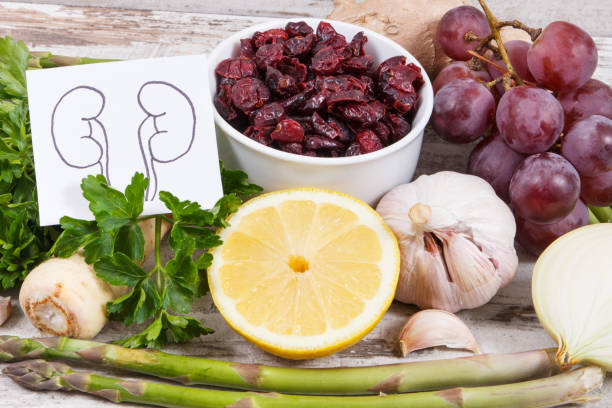The Role of Kidneys in Your Overall Health
What Do Your Kidneys Do?
The kidneys are two bean-shaped organs located on either side of your spine, just below your rib cage. They perform several essential functions, including:
-
Filtering waste products and excess fluids from the blood.
-
Regulating blood pressure by controlling salt and water levels.
-
Balancing electrolytes like sodium, potassium, and calcium.
-
Producing hormones that help create red blood cells and activate vitamin D for bone health.
Your kidneys filter approximately 50 gallons of blood every day, showcasing their critical importance to your body’s overall health.
Common Kidney Diseases
Kidney diseases often develop silently, with symptoms appearing only in advanced stages. Here are some common kidney-related conditions:
-
Chronic Kidney Disease (CKD): A progressive loss of kidney function over time.
-
Kidney Stones: Hard deposits of minerals and salts that form in the kidneys.
-
Acute Kidney Injury (AKI): Sudden kidney failure caused by injury or illness.
-
Urinary Tract Infections (UTIs): Infections that, if untreated, can spread to the kidneys.
-
Polycystic Kidney Disease (PKD): A genetic disorder causing cysts in the kidneys.
Early detection and management are key to preventing these conditions from worsening.
How to Maintain Kidney Health
Keeping your kidneys healthy involves a combination of smart lifestyle choices and regular health monitoring. Below are the most effective strategies:
1. Eat a Kidney-Friendly Diet
-
Reduce sodium intake: Limit salty foods like chips, canned soups, and processed meats.
-
Choose whole foods: Include more fruits, vegetables, and whole grains in your diet.
-
Limit protein intake: Too much protein can strain the kidneys, especially in people with kidney issues.
-
Stay hydrated: Drinking enough water helps flush out toxins and prevent kidney stones.
2. Exercise Regularly
Physical activity improves blood flow and helps maintain a healthy weight, reducing the risk of kidney strain. Aim for at least 150 minutes of moderate exercise (e.g., brisk walking) per week.
3. Control Chronic Conditions
-
Manage diabetes: High blood sugar damages kidney filters over time.
-
Monitor blood pressure: Keep it below 130/80 mmHg to reduce kidney stress.
-
Lower cholesterol: High cholesterol can lead to blockages that harm kidney function.
4. Avoid Overuse of Medications
Nonsteroidal anti-inflammatory drugs (NSAIDs) like ibuprofen can damage kidneys if used excessively. Always consult your doctor before taking medications.
5. Quit Smoking and Limit Alcohol
Smoking reduces blood flow to the kidneys, while excessive alcohol consumption can cause dehydration and harm kidney function.
Comparison of Kidney Health Maintenance Methods
The table below summarizes the pros and cons of common strategies to protect kidney health:
|
Method
|
Advantages
|
Disadvantages
|
|
Low-sodium diet
|
Reduces blood pressure and fluid retention
|
Requires effort to avoid processed foods
|
|
Staying hydrated
|
Flushes toxins and prevents kidney stones
|
Overhydration can dilute blood electrolytes
|
|
Regular exercise
|
Improves circulation and overall health
|
May be difficult for individuals with mobility issues
|
|
Medication moderation
|
Protects kidneys from drug-related damage
|
Requires careful consultation with a doctor
|
|
Smoking cessation
|
Improves kidney blood flow and slows disease
|
May require significant willpower or support
|
Each method has its strengths and limitations, but combining multiple strategies leads to the best results.
Warning Signs: When to See a Doctor
It’s crucial to recognize the early signs of kidney problems, including:
-
Persistent swelling in the ankles, feet, or face.
-
Changes in urination, such as color, frequency, or pain.
-
Constant fatigue or lack of energy.
-
High blood pressure that doesn’t respond to treatment.
-
Nausea, vomiting, or decreased appetite.
If you notice any of these symptoms, seek medical attention immediately.
FAQs About Kidney Health
-
How much water should I drink daily to keep my kidneys healthy?
Most adults should aim for 2-3 liters per day, but consult your doctor if you have kidney disease.
-
Can kidney damage be reversed?
Some acute kidney problems can improve with treatment, but chronic kidney damage is often irreversible.
-
Are there specific foods to avoid for kidney health?
Limit foods high in sodium, potassium, and phosphorus, especially if you already have kidney issues.
-
Is regular kidney screening necessary?
Yes, especially for individuals with diabetes, high blood pressure, or a family history of kidney disease.
-
Can exercise help improve kidney function?
While exercise doesn’t directly improve kidney function, it supports overall health and reduces risk factors like obesity and high blood pressure.
-
How do I know if I’m at risk for kidney disease?
Risk factors include diabetes, high blood pressure, obesity, smoking, and a family history of kidney problems.
Your kidneys play a vital role in maintaining your overall health, but they are often overlooked until problems arise. By adopting healthy habits such as a balanced diet, regular exercise, and proper hydration, you can significantly reduce the risk of kidney disease. Regular checkups and early intervention are crucial for addressing potential issues before they become serious. Take charge of your kidney health today—it’s an investment in your future well-being.
Sources
-
-
-

